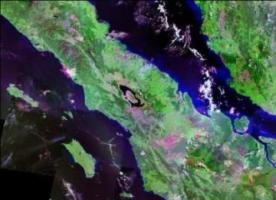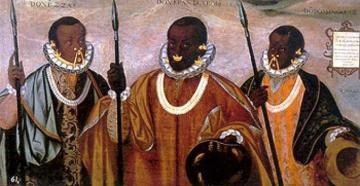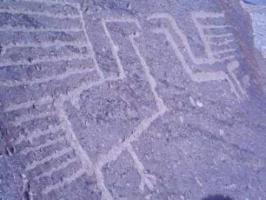Copy Link
Add to Bookmark
Report
AIList Digest Volume 5 Issue 216

AIList Digest Saturday, 19 Sep 1987 Volume 5 : Issue 216
Today's Topics:
Seminars - PRIDE: Knowledge-Based Design (SRI) &
Declarative Device Modeling (UPenn) &
Functional Languages and Temporal Logic (SRI),
Conference - AI in Minerals and Technology &
Logic and Databases (Switzerland) &
AIAA Computers in Aerospace VI &
RIAO '88 Content-Based Text and Image Handling
----------------------------------------------------------------------
Date: Wed, 16 Sep 87 18:15:21 PDT
From: Amy Lansky <lansky@venice.ai.sri.com>
Subject: Seminar - PRIDE: Knowledge-Based Design (SRI)
VISITORS: Please arrive 5 minutes early so that you can be escorted up
from the E-building receptionist's desk. Thanks!
PRIDE: A KNOWLEDGE-BASED FRAMEWORK FOR DESIGN
Sanjay Mittal (MITTAL@XEROX.COM)
Intelligent Systems Laboratory, Xerox PARC
11:00 AM, MONDAY, September 21
SRI International, Building E, Room EJ228
In this talk I will describe the Pride project at Xerox. The first
part of the talk will be about an expert system for the design of
paper transports inside copiers. A prototype version of the system has
been in field test for over a year and will be in regular use by
year-end. It has been successfully used on real copier projects inside
Xerox - both for designing and for checking designs produced by
engineers. From an applications point of view we have been motivated
by the following observations: knowledge is often distributed among
different experts; the process of generating designs is unnecessarily
separated from their analysis, leading to long design cycles; and
design is an evolutionary process, i.e., a process of exploration.
The second part of the talk will describe the framework in Pride for
representing design knowledge and using it to support the design
process. In this framework, called Describe, the process of designing
an artifact is viewed as knowledge guided search in a
multi-dimensional space of possible designs. The dimensions of such a
space are the design parameters of the artifact. In this view,
knowledge is used not only to search the space but also to define the
space. Domain knowledge is organized in terms of design plans, which
are organized around goals. Conceptually, goals decompose a problem
into sub-problems and are the units for structuring knowledge. Design
goals have design methods associated with them, which specify
alternate ways to make decisions about the design parameters of the
goal. The third major element of a plan are constraints on the design
parameters. The framework provides a problem solver for executing
these plans. The problem solver combines dependency-directed
backtracking ideas with an advice mechanism and a context mechanism
for simultaneously maintaining multiple partial designs. The Describe
framework has been successfully used to build a second expert system
called Cossack for configuring micro-computer systems.
If time permits, I will talk about some of the more recent ideas that
have come out of the Pride project: Knowledge compilation, Partial
choices in constraint reasoning, and constraint compilation.
------------------------------
Date: Mon, 14 Sep 87 17:38:54 EDT
From: tim@linc.cis.upenn.edu (Tim Finin)
Subject: Seminar - Declarative Device Modeling (UPenn)
From: Christian Overton <overt@omega.prc.unisys.com>
Seminar
Paoli Research Center
UNISYS
Paoli. PA
Coordinating the Use of
Qualitative and Quantitative Knowledge
in Declarative Device Modeling
Peter Karp
Knowledge Systems Laboratory
Computer Science Department
Stanford, CA 94305
We describe several new qualitative representations and reasoning
techniques. These techniques allow us to represent both state
variables and the interactions between them with varying degrees of
precision. This is desirable when we have only partial knowledge
about these entities or when we wish to express approximations to the
knowledge we do have. New reasoning strategies have been develped to
allow the propagation of the different types of values through the
differnt types of interactions.
Tuesday, Sept. 15, 1987
4:00 - 5:00
Cafeteria Conference Room, PRC
For further information contact Chris Overton at 648-7533.
------------------------------
Date: Tue, 8 Sep 87 15:29:12 PDT
From: Margaret Olender <olender@malibu.ai.sri.com>
Subject: Seminar - Functional Languages and Temporal Logic (SRI)
11:00am, WEDNESDAY, September 9, 1987
SRI International, Building E, Room EJ228
CONTROLLING THE BEHAVIOUR OF FUNCTIONAL LANGUAGE SYSTEMS
USING TEMPORAL LOGIC
Lyndon While
Imperial College
London
Functional programming languages, although possessing many advantages,
have certain limitations when they are applied to systems where control
over the program's behaviour is required.
We have developed a methodology that overcomes this limitation without
destroying the pure declrative nature of these languages. Temporal logic
is used to specify any behavioural aspect of the problem and this is
then transformed together with the (pure) functional language program
to produce a program that is guaranteed to satisfy the temporal requirements
however it is implemented.
We will describe the Tempoaral Logic specification language used
together with the transformation rules. This methodology has been
implemented as a completely automatic process and we will give some
examples of its use.
------------------------------
Date: Sun, 06 Sep 87 19:13:48 CDT
From: "Kevin O'Kane (205) 348 6363"
<OKANE%UA1VM.BITNET@wiscvm.wisc.edu>
Subject: Conference - AI in Minerals and Technology
Artificial Intelligence in Minerals
and Technology Conference
October 20-21, 1987
The University of Alabama
Ferguson Center
Tucaloosa, Alabama
Sponsored by:
United States Department of the Interior
Bureau of Mines
Co-Sponsors:
The University of Alabama, College of Continuing Studies
The University of Alabama, College of Engineering
University of Missouri, Rolla
Colorado School of Mines
For information contact:
Dr. Jack R. Woodyard
U.S. Bureau of Mines
Tuscaloosa Research Center
(205) 759-9422
or
Registration Services
College of Continuing Studies
P.O. Box 2967
Tuscaloosa, AL 35487
(205) 348-3000
Program Agenda:
1. Tutorial: Introduction to Neural Networks and Associa-
tive Memory (3.5 hours) Bart Kosko, Verac Corp.
2. Neural Networks Simulation for Welding Image Under-
standing.
3. Introduction to the University of Alabama Department of
Mechanical Engineering's Robotics Laboratory.
4. The Use of Expert Systems for Mineral Processing Appli-
cations.
5. Toward Fuzzy Expert Systems: An Example from Mineral
Identification.
6. Predicting Chemical Parameters with Prolog.
7. Experiences Gained form Using an Expert Systems
Approach in Process Management.
8. Knowledge Systems for Troubleshooting Production
Machines.
9. Use of Fuzzy Logic for Rule Based Control of Liquid
Level in Vessels.
10. The Goal of User Development and Maintenance of Expert
Systems.
11. Genetic Algorithm.
12. MICA - An Expert System.
13. Expert System for Material Selection.
14. Application of Re-Writing Techniques to Inference Tech-
niques.
15. Process Control with a General Purpose Fuzzy Expert
System.
16. Computer Architecture and Intelligent Systems for Real
Time Applications.
17. Role of AI in Analytical Instrumentation.
18. Application of Expert Systems Knowledge Refinement
Techniques in Material Technology.
19. Application of Artificial Intelligence to Alloy Design.
20. Use of Expert Systems in in Cast Metals Technology.
21. Prototyping of an Expert System for Troubleshooting of
Clinkers Grinding Mills.
22. CORDIAL: A PC Computer-based System for the Diagnosis
of Stress Corrosion Behavior in High Strength Aluminum
Alloy.
23. Artificial Intelligence in Automated Scrap Processing.
24. Applications of Expert Systems Technology at Bethlehem
Steel Corporation.
25. Panel Discussion, Summation and Conclusion.
For registration information, contact the Jack Woodyard or
Registration Services (given above) or OKANE at
UA1VM.BITNET.
------------------------------
Date: 10 Sep 87 23:59:31 GMT
From: mcvax!cui!shneider@uunet.UU.NET (SCHNEIDER Daniel)
Reply-to: mcvax!cui!shneider@uunet.UU.NET (SCHNEIDER Daniel)
Subject: Conference - Logic and Databases (Switzerland)
SGAICO (Swiss Group for Artificial Intelligence and Cognitive Science)
CONFERENCE AND TUTORIAL ON LOGIC AND DATABASES
HEC, University of Lausanne, Switzerland
(sorry for being late, but the deadlines are not so real ....)
CONFERENCE, Wednesday, October 7, 1987
Jean-Marie Nicolas (ECRC, Munich): On Deductive Databases
Shamim A. Naqvi (MCC, Austin): The Problem of Recursive Queries
in Knowledge Based Systems}
Laurent Vieille (ECRC, Munich): DEDGIN: A Deductive Query-Answering
Database System}
Eric Simon (INRIA, Paris): A Production Rule Based Approach
to Deductive Databases
Richard Paul Braegger (ETH,Zurich): Knowledge Based Tools
for the Design of Data Bases
Conference Fees SI or SVI/FSI Sfr. 120.-
non members Sfr. 200.-
students Sfr. 50.-
TUTORIAL, Tuesday, October 6, 1987
A one-day introduction to the subject will be offered both in French and in
German by Pierre Bonzon (HEC, Lausanne), Robert Marti and Alfred Ultsch (ETH,
Zurich). The number of participants will be limited to 30 per group. Familiarity
with DBMS concepts will be assumed and emphasis will be on logic concepts.
Tutorial Fees SI or SVI/FSI Sfr. 130.-
non members Sfr. 210.-
students Sfr. 20.-
Program Committee Pierre Bonzon (University of Lausanne), Jiri Kriz (BBC,Baden)
Daniel Schneider (University of Geneva), Alfred Ultsch (ETHZ)
Registration: Contact the SI secretariat: (+41 1) 481 73 90 (Ms. A.-M. Nicolet)
SI/SGAICO, P.O.Box 570, 8027 Zurich, Switzerland.
(Late registration for the conference is possible at the registration desk)
From: Daniel K.Schneider, ISSCO, University of Geneva, 54 route des Acacias,
1227 Carouge (Switzerland), Tel. (..41) (22) 20 93 33 ext. 2116
--> to EAN/X400/MHS (on Unix, (preferable :]) :
EAN/X400:shneider@cui.unige.chunet | if reply does
ARPA: shneider%cui.unige.chunet@csnet-relay.arpa | not work,
CSnet: shneider%cui.unige.chunet@csnet-relay.csnet | keep trying:
(or:....%relay.cs.net@relay.cs.net) | mailers are
JANET: shneider%cui.unige.chunet@cs.ucl.ac.uk | *great* fun!
uucp: mcvax!cernvax!cui!shneider | ;-( |+{ :=[
--> to BITNET (on VMS, the easy solution):
BITNET: SCHNEIDE@CGEUGE51 ARPA: SCHNEIDE%CGEUGE51.BITNET@WISCVM
== Warnings: (1) hitting the reply key may not work
(2) CHUNET will be renamed soon into CH
--
Daniel K.Schneider, ISSCO, University of Geneva, 54 route des Acacias,
1227 Carouge (Switzerland), Tel. (..41) (22) 20 93 33 ext. 2116
--> to EAN/X400/MHS (on Unix, (preferable :]) :
EAN/X400:shneider@cui.unige.chunet | if reply does
ARPA: shneider%cui.unige.chunet@csnet-relay.arpa | not work,
CSnet: shneider%cui.unige.chunet@csnet-relay.csnet | keep trying:
(or:....%relay.cs.net@relay.cs.net) | mailers are
JANET: shneider%cui.unige.chunet@cs.ucl.ac.uk | *great* fun!
uucp: mcvax!cernvax!cui!shneider | ;-( |+{ :=[
--> to BITNET (on VMS, the easy solution):
BITNET: SCHNEIDE@CGEUGE51 ARPA: SCHNEIDE%CGEUGE51.BITNET@WISCVM
------------------------------
Date: Fri, 11 Sep 87 06:03 PDT
From: nesliwa%nasamail@ames.arpa (NANCY E. SLIWA)
Subject: Conference - AIAA Computers in Aerospace VI
As a member of the AIAA Technical Committee on Computer Systems, I wanted
to share with you the program of our up-coming bi-annual conference,
Computers in Aerospace 6. The themes this year ar AI, Ada, and Advance
Architectures, all slanted to aerospace applications. I would appreciate
your sharing this information with anyone in your organization that you
think might be interested in it. I'm hapy to answer any questions:
FTS 928-3871, (804)865-3871
Nancy Sliwa
[I've cut this from the original 47,000 characters. If you
need the full text, contact the author. -- KIL]
Subj: Computers in Aerospace VI Program
American Institute of Aeronautics and Astronautics
Computers in Aerospace VI Conference
Hilton at Colonial
Wakefield, Massachusetts
October 7 - 9, 1987
Conference Committee
General Chairman
Malcolm Stiefel
MITRE Corp.
Technical Program Chairman
Lt. Colonel Ralph Gajewski
SDIO
Technical Program Co-Chairman
Wayne H. Bryant
NASA Langley Research Center
------------------------------
Date: Fri, 11-SEP-1987 18:28 EST
From: FOXEA%VTVAX3.BITNET@wiscvm.wisc.edu
Subject: Conference - RIAO '88 Content-Based Text and Image Handling
In V3 #20 the call for papers for RIAO '88 was published. I have heard that
there has been a disappointing response from US universities. Since some
of you may not have received #20, due to mail problems or summer trips,
I am sending out the call again.
Some may have noted that this conference is the same week as the
Office Information Systems Conference. Special arrangements will be
made to schedule people who want to attend both to speak on the 21st
or 22nd if they want to then go on to the OIS conference.
While it is desirable that systems being discussed be demonstrable,
it is understood that university systems are typically prototypes, so
people should not be scared off by that factor. - Ed
CALL FOR PAPERS
RIAO 88
USER-ORIENTED CONTENT-BASED
TEXT AND IMAGE HANDLING
Massachusetts Institute of Technology
Cambridge, MA
March 21-24, 1988
Conference
organized by:
Centre National de la Recherche Scientifique (CNRS)
Centre National de Recherche des Telecommunications (CNET)
Institut National de Recherche en Informatique
et Automatique (INRIA)
Ecole Nationale Superieure des Mines de Paris
Centre de Hautes Etudes Internationales d'Informatique
Documentaires (CID)
US participating organizations:
American Federation of Information Processing Societies
(AFIPS)
American Society for Information Science (ASIS)
Information Industry Association (IIA)
This conference is prepared under the direction of:
Professor Andre Lichnerowicz
de l'Academie des Sciences de Paris
and
Professor Jacques Arsac
correspondant de l'Academie des Sciences de Paris
RIAO: Recherche d'Informations Assistee par Ordinateur
A GENERAL INTRODUCTION:
RIAO 88 is being held to demonstrate the state of the art in
information retrieval, a domain that is in rapid evolution
because of developments in the technology for machine control of
full-text and image databases. This evolution is stimulated by
the demands of end-users generated by the recent availability of
CD-ROM full text publishing and general public access to
information data bases.
A group of French organizations has taken the initiative of
preparing this conference. Its wish in promoting this forum is
not only to stimulate and challenge researchers from all nations
but also to increase an awareness of European technology.
This "call for papers" is beeing distributed world-wide. We
want to reach individuals in the research communities throughout
the university and industrial sectors.
The conference will be held in Cambridge, MA. We hope that
it will encourage the exchange of European and American
viewpoints, and establish new links between research teams in
United-states and Europe.
CALL FOR PAPERS
General theme
Full-text and mixed media database systems are
characterized by the fact that the structure of the
information is not known a priori.
This prevents advance knowledge of the types of
questions that will be asked, unlike the situation found in
hierarchical and relational database management systems.
You are invited to submit a paper showing how the
situation can be dealt with. Special attention will be given to:
- techniques designed to reduce imprecision
in full-text database searching;
- data entry and control;
- "friendly" end-user interfaces.
- new media
A large number of specific subjects can be treated
within this general framework. Some suggestions are made in
the following section.
Specific themes
A) Linguistic processing and interrogation of full
text databases:
- automatic indexing,
- machine generated summaries,
- natural language queries,
- computer-aided translation,
- multilingual interfaces.
B) Automatic thesaurus construction,
C) Expert system techniques for retrieving information
in full-text and multimedia databases:
- expert systems reasoning on open-ended domains
- expert systems simulating librarians accessing
pertinent information.
D) Friendly user interfaces to classical information
retrieval systems.
E) Specialized machines and system architectures designed
for treating full-text data, including managing and accessing
widely distributed databases.
F) Automatic database construction scanning techniques,
optical character readers, output document preparation, etc...
G) New applications and perspectives suggested by
emerging new technologies:
- optical storage techniques (videodisk,
CD-ROM, CD-I, Digital Optical Disks);
- integrated text, sound and image retrieval
systems;
- electronic mail and document delivery based
on content;
- voice processing technologies for database
construction;
- production of intelligent tutoring
systems;
- hypertext, hypermedia.
Conditions for participation
The program committee is looking for communications
geared toward practical applications. Papers which have not been
validated by a working model, a prototype or a simulation, or for
which a realization of such a model seems currently unlikely, may
be refused.
Authors must submit a paper of about 10 pages doubled
spaced, and a 100 word abstract.
Four copies must be sent before October 30 to one of
these two addresses:
- RIAO 88, Conference Service Office, MIT, Bldg 7, Room 111
CAMBRIDGE, MA 02139
- RIAO 88, CID, 36 bis rue Ballu, 75009 PARIS FRANCE
Each presentation will last 20 minutes followed by 10
minutes of discussion and questions.
Arrangement have been made with the international
journal "Information Processing and Management" for publishing
expanded versions of some papers.
High quality audiovisual techniques should be used
when presenting the paper.
Separate demonstration sessions can be scheduled
if requested.
Particular attention will be paid to :
- the use of readily available equipment for
demonstrations (IBM PC, APPLE, network connec-
tions...);
- pre-recorded video or floppy disk displays.
Hardcopy printouts of results should be avoided if
possible.
English is the working language of the conference.
For further information call:
in North America : Karen Daifuku,
tel: (202) 944 62 52
in other countries: Secretariat General du CID in France,
tel: (1) 42 85 04 75
------------------------------
End of AIList Digest
********************


























